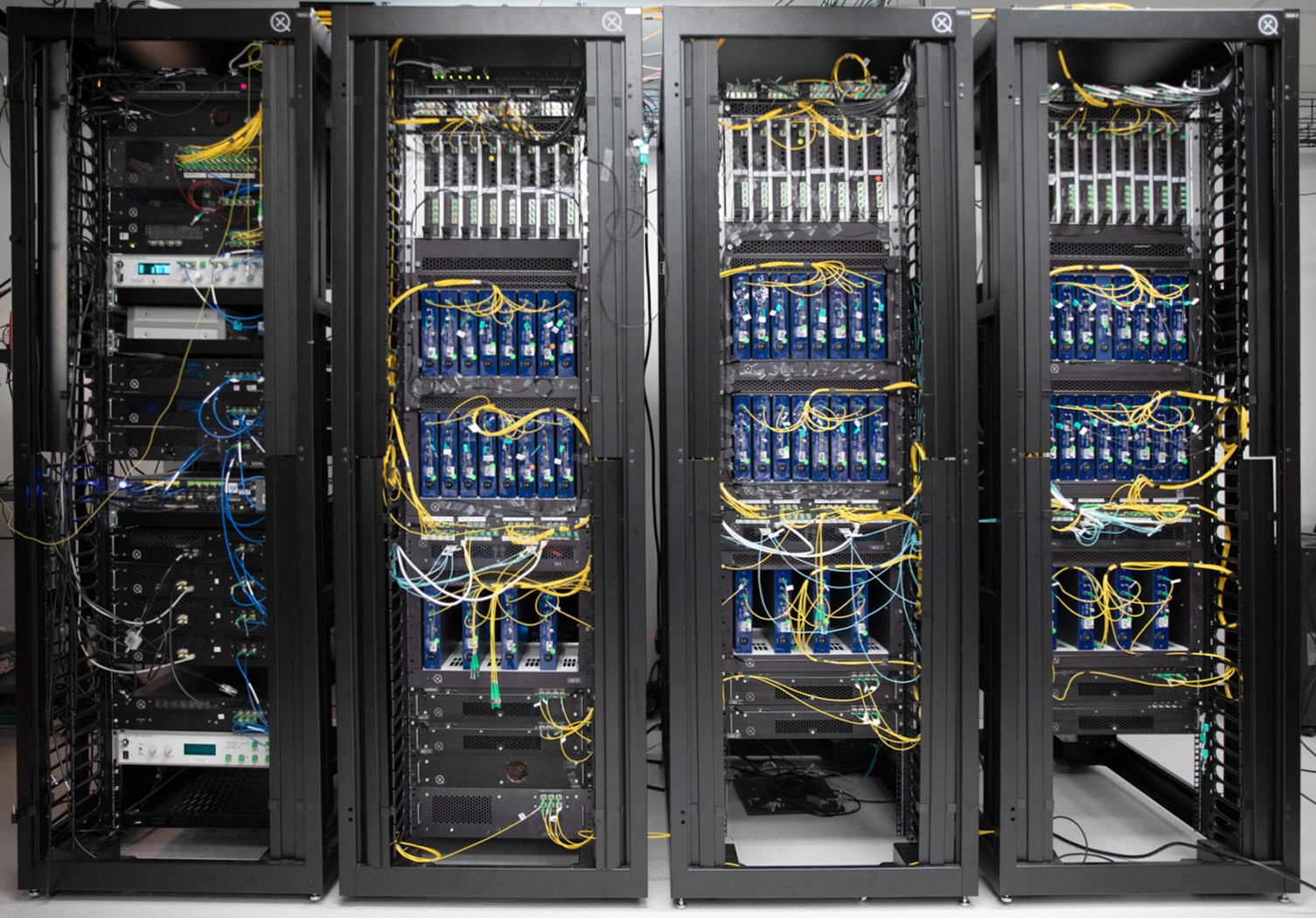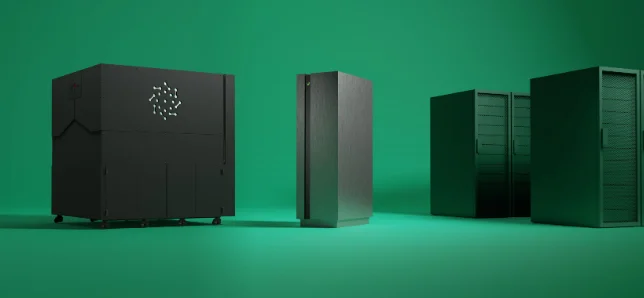Insider Brief:
- Xanadu developed Aurora, a universal photonic quantum computer with a modular architecture of four interconnected server racks, enabling scalability to thousands of racks and millions of qubits.
- Aurora operates at room temperature, leveraging 12 qubits, 35 photonic chips, and 13 kilometers of fiber optics, while utilizing commercially available chips made with established fabrication techniques.
- Xanadu addressed the challenge of scalability through Aurora’s photonic networking approach and is now concentrating on reducing optical loss to achieve fault-tolerant quantum computing.
- Aurora builds on Xanadu’s previous systems, integrating modularity and scalability to enable large-scale networking and support quantum computational processes like gate operations and real-time error correction.
- Image Credit: Xanadu
PRESS RELEASE — In a recent release, Xanadu, a Canadian quantum computing company specializing in both hardware and software, has announced the development of Aurora, a universal photonic quantum computer. The machine is highlighted in the release as the first of its kind to utilize a modular architecture of four independent server racks, interconnected and networked using photonic technology. Aurora operates at room temperature and consists of 12 qubits, 35 photonic chips, and 13 kilometers of fiber optics.
According to Xanadu, Aurora’s modular design provides a pathway to scale quantum systems to thousands of server racks and millions of qubits, positioning it as a potential foundation for future quantum data centers. Additionally, the development is described as evidence in the progress of scaling quantum computing systems towards larger implementations.
“The two big challenges remaining for the industry are the improved performance of the quantum computer (error correction and fault tolerance) and scalability (networking). Xanadu has now solved scalability,” said Christian Weedbrook, Founder and CEO of Xanadu. “Photonics really is the best and most natural way to both compute and network. We now could, in principle, scale up to thousands of server racks and millions of qubits, but first we will focus on performance in reducing loss and being fault tolerant.”

Aurora builds on the company’s previous photonic systems, including X8 and Borealis. These earlier platforms demonstrated foundational principles that are integrated into Aurora, including modularity and scalability. This modular approach allows Aurora to handle quantum computational processes such as gate operations, real-time error correction, and decoding, all within the practical constraints of quantum clock rates and classical control hardware.
The system also benefits from its reliance on commercially available photonic chips manufactured using established fabrication techniques. Operating at room temperature, Aurora avoids the complex cooling requirements associated with many quantum systems, offering a practical route for deployment in varied environments.
As mentioned in the release, another notable aspect of Aurora’s design is its potential for large-scale expansion. Its modular architecture and photonic interconnects provide a straightforward mechanism for networking multiple units.
Looking ahead, the Xanadu team is focused on addressing the challenge of optical loss, a necessary resolve towards achieving fault-tolerant quantum computing. As part of the development of Aurora, the team quantified loss tolerances within the system and identified optimization opportunities in chip design and fabrication. The biggest impact, as documented by the team based on results published in Nature, stands to be found in optimizing chip design and fabrication alongside Xanadu’s foundry partners.















